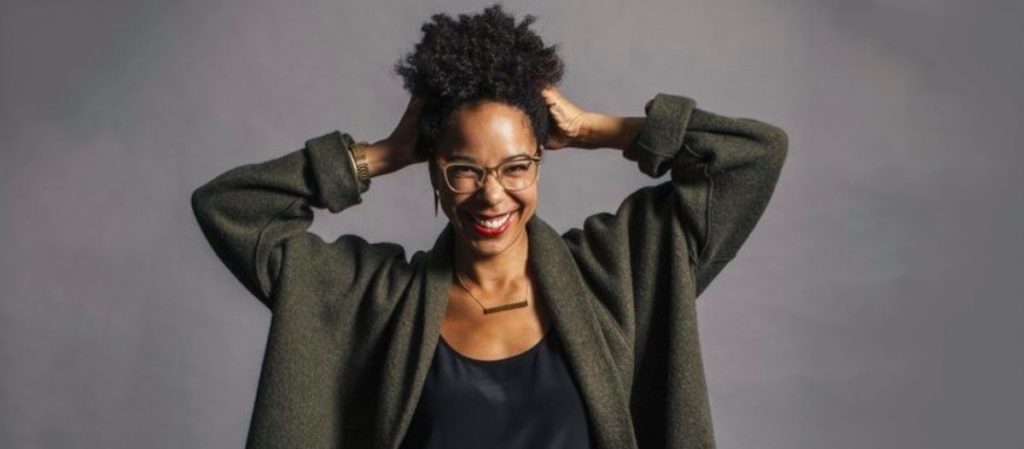Celebrated ocean conservationist Dr. Ayana Elizabeth Johnson knows that caring about the ocean doesn’t just mean thinking about marine ecosystems, but people too. That’s why the invertebrate-loving Brooklynite has made her focus the intersection between ocean conservation, coastal communities and social justice.
“There is a home for everyone in this movement – in conservation, climate justice, ocean justice and environmental work.”
A couple of years ago, the marine biologist created Ocean Collectiv, a consulting firm with an extraordinary diversity of expertise, to help people think in a more interconnected, holistic and nuanced way about conservation. Urban Ocean Lab is Ayana’s latest creation – a “super-nerdy” policy think tank gathering a bunch of smart people to think through the future of coastal cities, sea level rise and storms in our climate changed world.
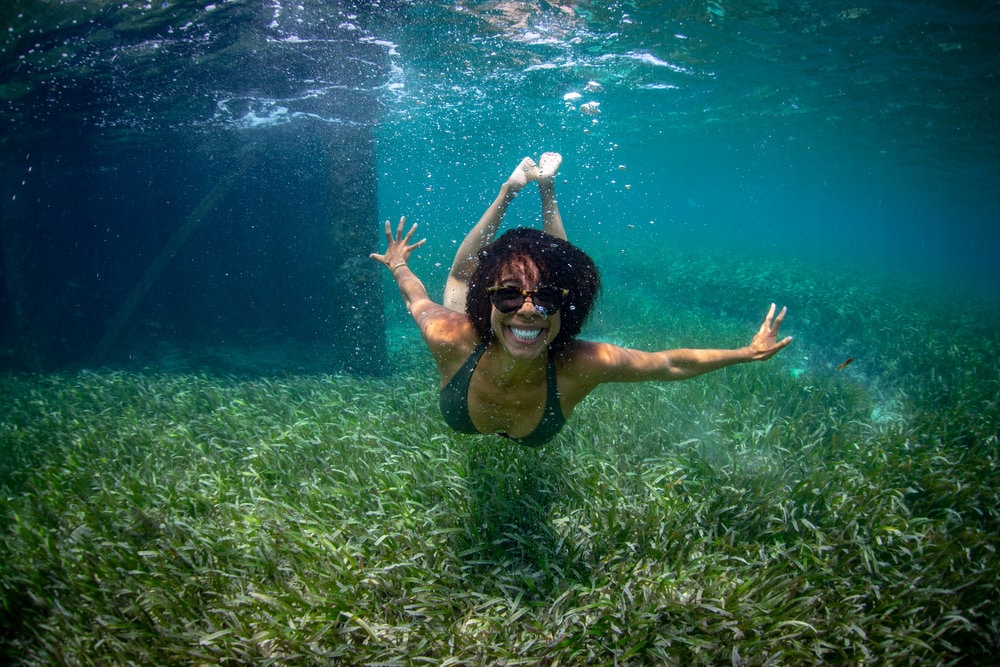
Sea change | Photo: Jeremy McKane
Also a jazz singer, we chatted to Ayana about finding joy in unsung solutions, being happy spending time on the farm with her mother and intellectual sparring partner, and not aspiring to be a highly-sought after public figure: “I shouldn’t be the most visible woman of colour in ocean conservation.” This is her FutureHero interview.
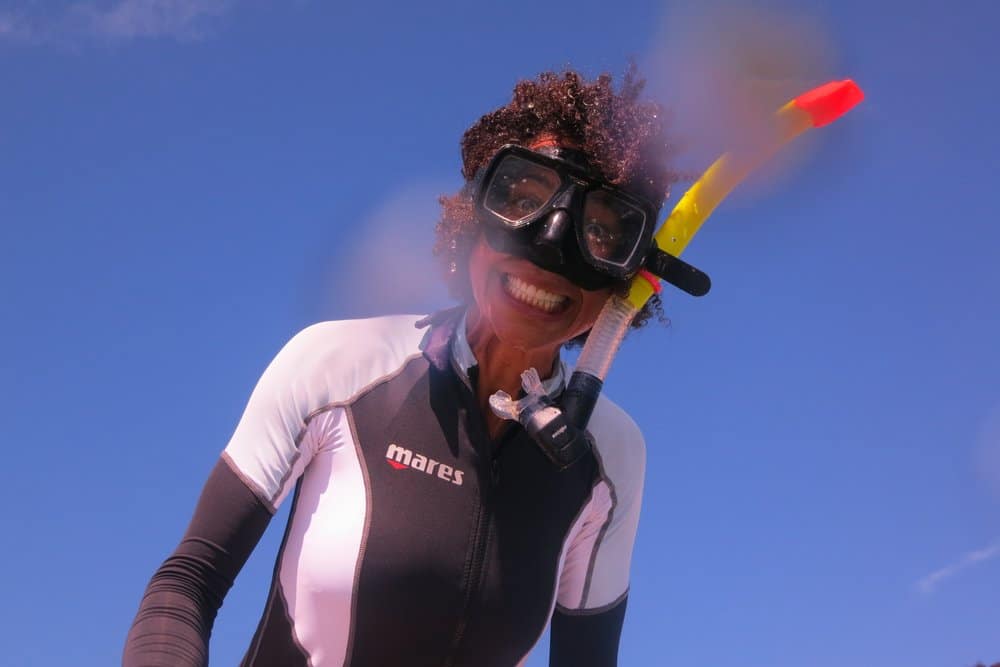
Feel the joy | Photo: Will McClintock
Dr. Ayana Elizabeth Johnson:
Fixing the future means… regreening and cooling the planet, in a way that doesn’t continue to trample on the rights of communities of colour and poor folks.
People are causing the problems and people need to be a part of the solution. But it matters who are we leaving out and whose input we seek. Are we making sure that poor communities and communities of colour along the coast – who have strong relationships with the ocean and depend on it for their nutrition, livelihoods and culture – are benefiting from conservation, or are they being excluded?
Everything is a spectrum. That’s the way that I think about conservation work and care for nature and humanity and justice. We have a lot of control over where on that spectrum of ecological health we end up, and that gives me some peace.
We have to invent a new world. Optimism in the context of climate change and the biodiversity crisis would be unscientific. We’re really screwing up and the outlook is not good. But we also can’t ever give up working toward a different future than the disaster we’re barrelling toward. We need a new relationship with nature, a new way of living with each other, the planet and the 8 million other species we share it with.
The ocean is not just about beach vacations. There is a food security and economic issue as well. About 500 million people depend directly on coral reefs for their nutrition and income and 3 billion depend on seafood as a significant portion of their protein.
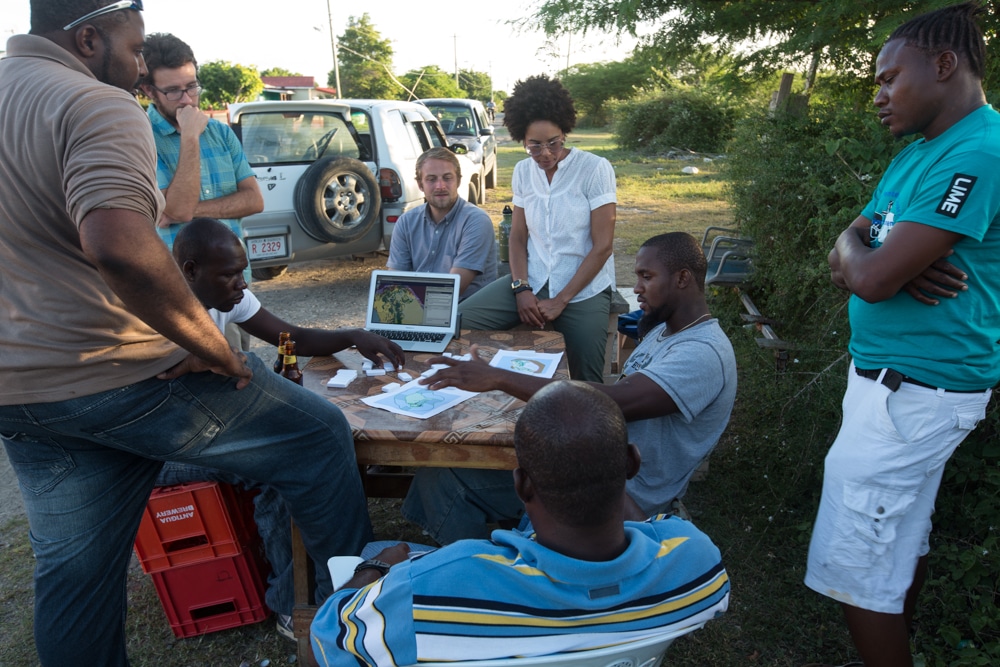
Community consultations, Blue Halo Initiative, Barbuda | Photo: Will McClintock
Technology is a useful tool and sometimes a very expensive distraction. We need to be more expansive about what we think of as technological interventions and opportunities, especially when working with developing countries.
Not everything is drones and big data. Lots of low tech solutions are unsung. During my PhD research I worked with fishermen in the Caribbean to redesign fishing traps to reduce the amount of catch that was unwanted species or juvenile fish. We put a skinny slot in the corner of the trap and the baby fish and the narrow bodied species would escape. The groupers and snappers would stay in the trap. The equipment was a piece of rebar that’s used in construction, welded into a rectangle, and had a $1 retrofit cost. That to me is also technology.
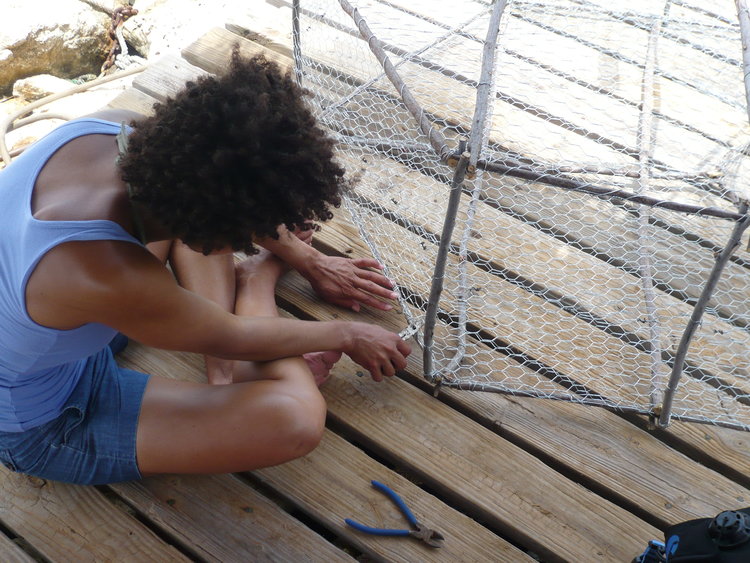
Modifying a trap
Collectively we have the resources and expertise to do way more conservation. Who decides what we save with our conservation efforts and how are those decisions made? My offering of triage as a framework for conservation was a plea that we make those decisions more deliberately and thoughtfully, instead of casually letting some things fall by the wayside. Perhaps by being more explicit about the tradeoffs, we can build the will to do more. The key to halting climate change: admit we can’t save everything.
A person who looks like me can be called Dr. Johnson. I decided to be more visible and public about my work when graduating Scripps Institution of Oceanography. They were starting a campaign of huge billboards in airports featuring graduate students talking about their work. I agreed to my photograph being used, with one condition… that they put PhD after my name to inspire young people who had never thought that they could be a marine biologist or a scientist, especially girls of colour.
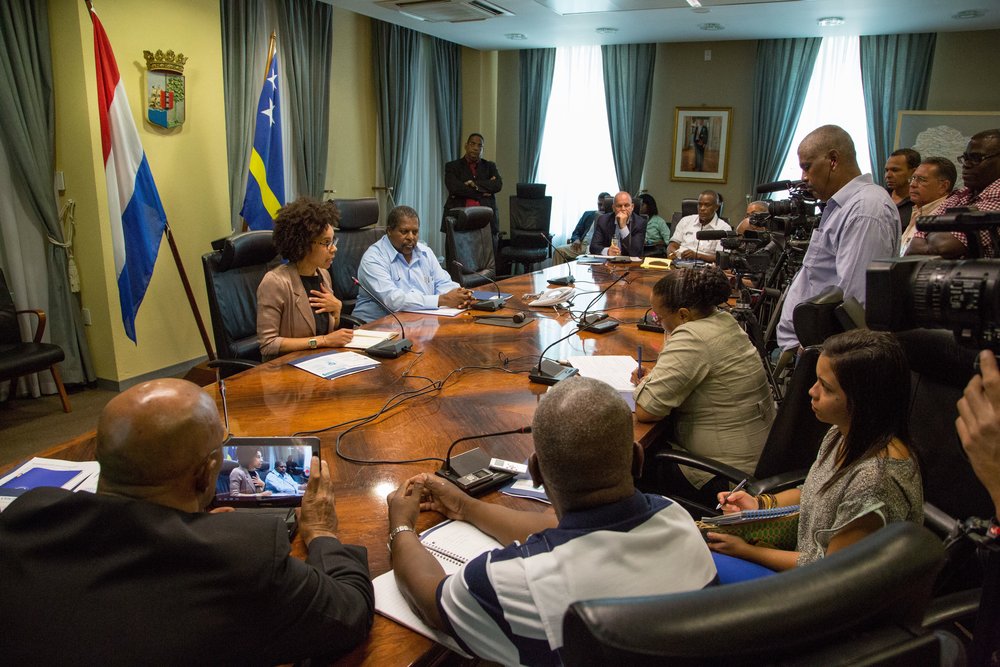
Press conference, Blue Halo Initiative, Curacao | Photo: Daryn Deluco
I shouldn’t be the most visible woman of colour in ocean conservation. I get so many emails from people of colour who want advice on how to become a marine biologist or how to make it in ocean conservation. It makes me sad because I know that the reason I’m getting so many inquiries is because there aren’t enough people like me.
I always get asked how do you stay hopeful? And the short answer is: I don’t! Thankfully hope is not what I need to stay motivated and productive. I’ve had great opportunities and was raised to to understand this means I have a duty to give back to my community. I want to be useful and contribute. I was not raised to believe that happiness was the goal of life.
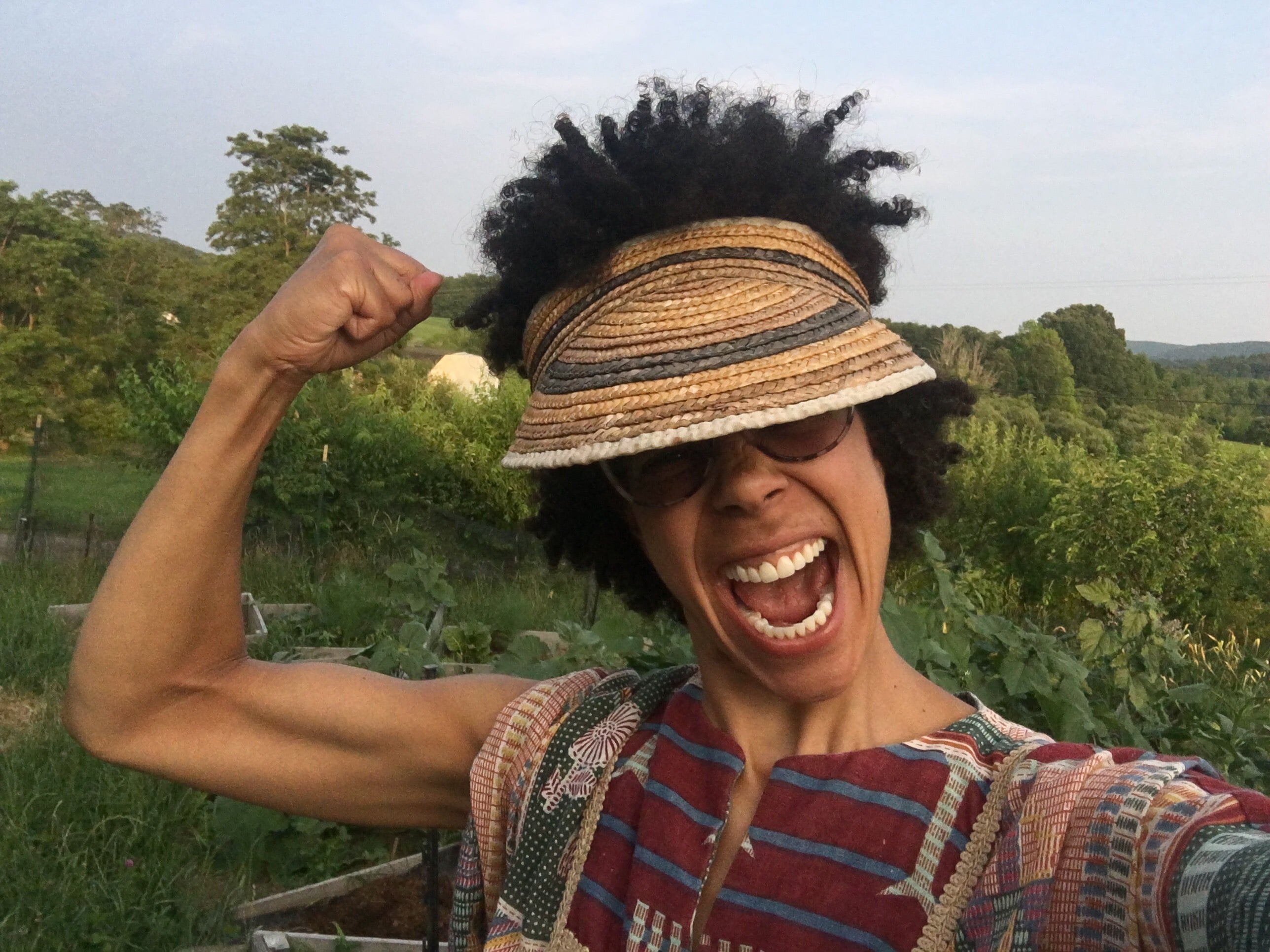
Follow @ayanaeliza on Instagram
My mother is my greatest champion – and most incisive critic. I’m an only child: my mother and I have always been really close. She is one of the most well-read and intellectually curious people I will ever know – eager to understand how the world works, how things are connected, history and what the future could look like. I wasn’t raised with many compliments. She keeps me honest, but is still a mother, and worries that I’m eating enough, getting enough sleep, spending enough time with friends and dancing, singing and finding joy.
I’ve been spending more and more time with my mother at our farm. She will be 75 this summer and lived in New York City until she was 60-years-old, when she retired from being an English teacher and moved to the dirt-road, top-of-the-hill countryside. I want to keep learning from her as she learns to read this new ecosystem.
Urban Ocean Lab is a new super-nerdy policy think tank for coastal cities. It’s being created with two amazing co-founders, one of whom worked in environmental policy in Congress for over 20 years, Jean Flemma, and Marquise Stillwell, who runs a design firm.
Pay-it-forward: My favourite project is Billion Oyster Project. They aim to re-plant a billion oysters in New York Harbor by 2035 (creating habitat and filtering water), and to involve a million students in the process. Restoring ecosystems while training a diverse next generation of ocean leaders is the loveliest win-win.
The seemingly small difference between 1.5 and 1.6 degrees Celsius of warming matters. It’s a life or death situation, so is worth fighting for. It’s not all or nothing. Whether we protect 30% or 50% of the ocean, we need to get those numbers up – because right now we’re at 2.2% of the ocean fully-protected.
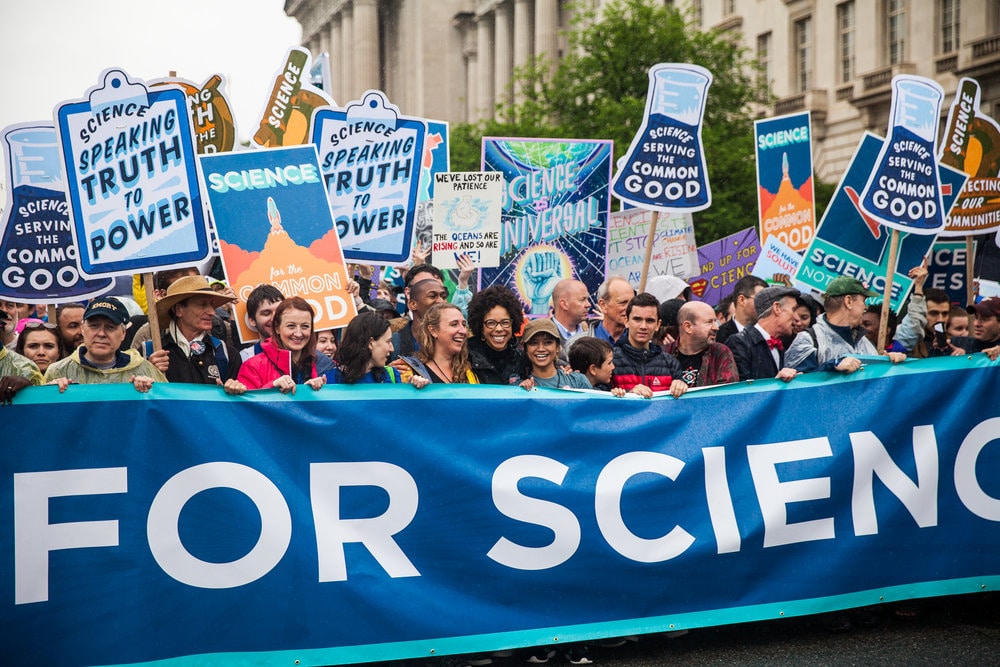
Co-leading the March for Science| Photo: Kisha Bar
I feel resistance to being more and more of a public figure. It does feel like a responsibility or a burden to be giving other people hope all the time. But I’m honoured to be a role model for young people and take that as a really serious responsibility.
Most young people have the same questions: how do you decide what to go to graduate school? Do I need to get a PhD? How do you choose between working in nonprofit or government or academia? How can I make the most impact? How do you navigate being a woman of colour in this very white field? These are all important questions and I’m going to try to answer them all in a frequently asked questions document.
I never thought I would write a book, but I’m now writing one, editing an anthology, and starting a children’s series.
My FuturePower would be… to be able to fall into a deep sleep on a dime! You gotta be well rested to keep at this work. More broadly, I’d love to become a super-speedy planter of trees (especially mangroves). The thought of zipping around multiplying the perfect carbon sucking, planet cooling machines is such a thrill.
AtlasAction ► Take action for a dose of #OceanOptimism. Dr. Ayana Elizabeth Johnson was talking to Atlas of the Future co-founder Cathy Runciman.
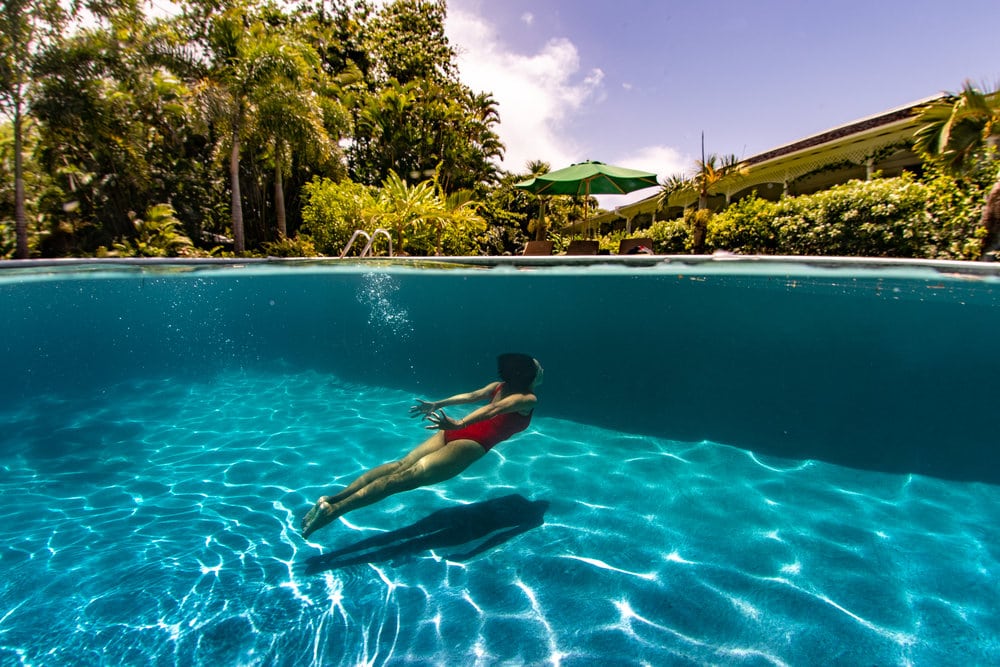
FIN | Photo: Jeremy McKane
